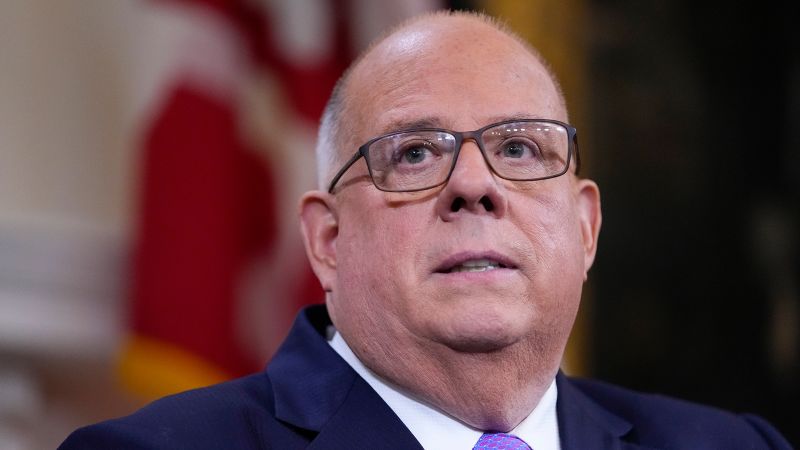Former Republican Gov. Larry Hogan initially had no interest in running for a Maryland Senate seat but was encouraged by Senate GOP Leader Mitch McConnell, former President George W. Bush, and other top Republicans to enter the race. Hogan finally relented in February, joining the Senate race at the last minute. His decision has significantly impacted the race to replace retiring Democratic Sen. Ben Cardin this November, making what was once a safe Democratic seat now competitive and important in determining the balance of power in the Senate.
The Democrats are divided on who to select as their nominee for the Senate race, with a contentious primary contest between Rep. David Trone and Prince George’s County Executive Angela Alsobrooks. They are already looking to nationalize the race and tie Hogan to the more extreme elements of the Republican Party. Despite Hogan’s efforts to run as an independent-minded candidate and distance himself from former President Donald Trump, he is expected to vote and caucus with Republicans if elected. Democrats are preparing for a tough battle against Hogan.
While Hogan has stated that he will not vote for Trump or Biden, he acknowledges that winning the Senate race will be a challenging task, especially with the shadow of Trump’s performance in Maryland in the 2020 election hanging over the campaign. The race is likely to be more competitive and expensive than initially anticipated, with Democratic sources closely watching the contest but unsure if they will allocate additional resources. Senior Republicans see Maryland as an important race in their efforts to secure a majority in the Senate.
The Senate race has become one of the most expensive in the country, largely due to Trone’s personal wealth and significant self-funding of his campaign. This significant financial advantage could make Trone a more competitive candidate against Hogan and potentially more appealing to Democratic leadership, but he has faced criticism for his eagerness to pour personal funds into the race. The battle for the Democratic nomination is also playing out through congressional endorsements, with Trone securing high-profile endorsements from House Democratic leadership.
Hogan is running a hyper-local campaign, emphasizing his willingness to work across the aisle and connect with voters on a personal level. However, he faces questions about his record as governor, particularly on abortion rights, which are a significant issue in Maryland this fall. Hogan has faced criticism for not providing direct answers on key issues, such as abortion rights and his views on Roe v. Wade. Additionally, despite running as an anti-Trump Republican, Hogan’s past actions, such as writing in Ronald Reagan’s name in the 2020 election, have raised questions about his ability to distance himself from Trump and operate in a bipartisan manner.
As the Maryland Senate race heats up, both parties are gearing up for a tough and competitive battle. Hogan’s late entry into the race has transformed what was once a safe seat for Democrats into a battleground that could shape the balance of power in the Senate. With significant financial investments from Trone and a divisive Democratic primary, the outcome of the race remains uncertain. Both parties are closely watching the developments in Maryland, with the national implications of the race signaling the importance of securing a victory in this key battleground state.


